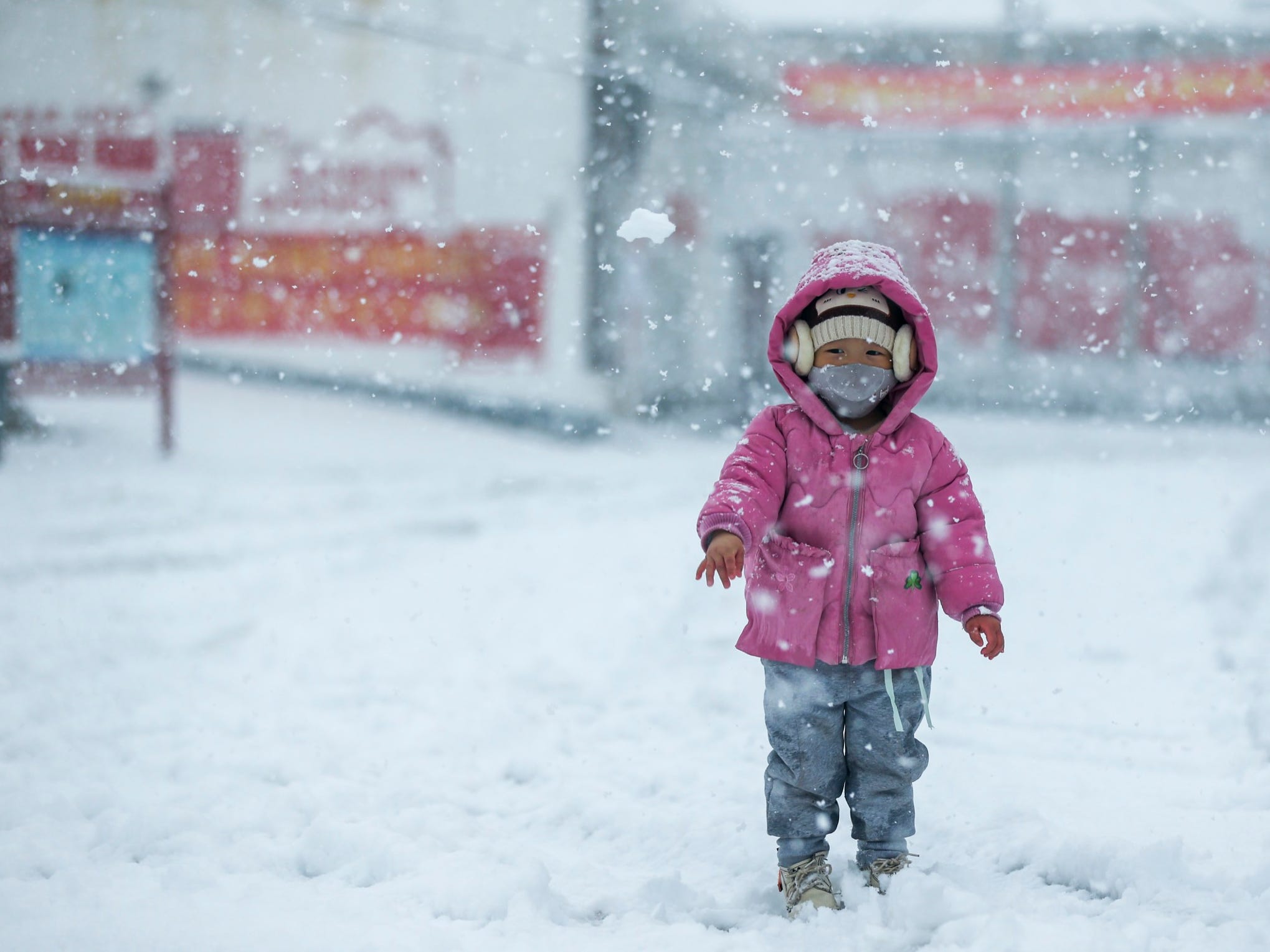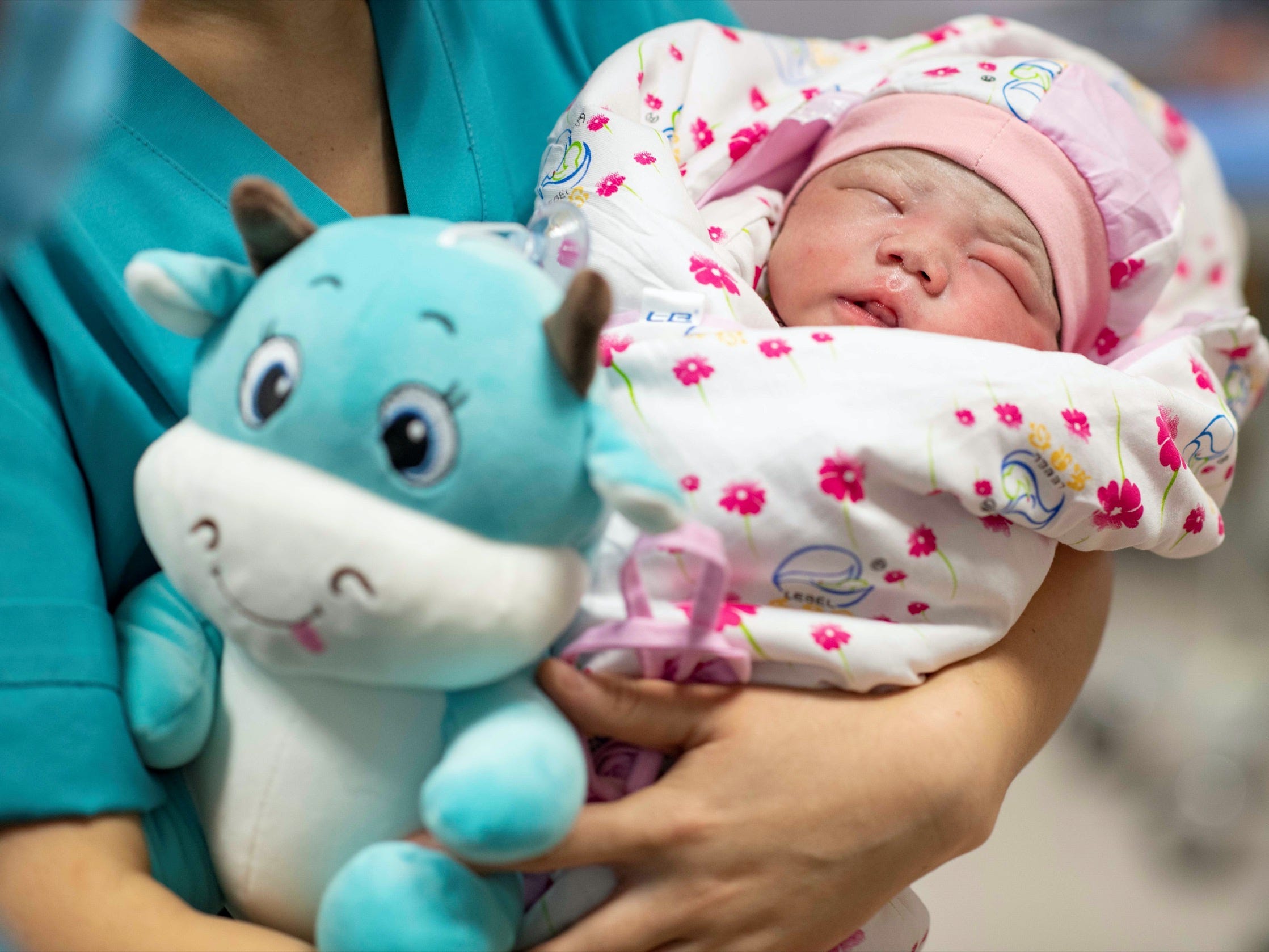
Shi Gangze/VCG via Getty Images
- A Chinese couple has paid $155,000 in fees to have seven children, per the SCMP.
- Families must pay “social support fees” if they violate the country’s two-child maximum policy.
- Experts worry that China’s falling birth rates and aging population could be a demographic time bomb.
- Visit Insider’s homepage for more stories.
A Chinese couple has paid $155,000 in fees in order to have seven children in violation of the law that limits couples to having two children, Mandy Zuo reported for the South China Morning Post.
Zhang Rongrong, a 34-year-old businesswoman, and her 39-year-old husband have five boys and two girls between one and 14 years old, Zhang told the Post. In flouting China’s two-child policy, the couple had to pay their local government “social support fees.” Otherwise, their additional children wouldn’t have been able to receive government identity documents.
Zhang, who runs skincare, jewelry, and garment companies in the Guangdong province in southeast China, told the Post she wanted multiple children so that she never had to be alone.
“When my husband’s away on trips and the older kids are also away for study, I still have other children around me …” she said. “When I’m old, they can visit me in different batches.”
She told the Post that their seventh would be their last child because her husband had a vasectomy in 2019. She added that she made sure she was financially stable before having the younger children and that her kids were all “very happy.”
Zhang could not be reached for comment for this story.
A demographic time bomb
China ended its one-child policy in 2015 after 36 years. The policy was introduced in 1979 to slow the country's population growth - and it may have worked a little too well.
Even though families are now allowed to have up to two children, many are opting to have only one or no children at all, often because of high costs of living and raising children. After a brief rise in 2016, China's birth rate has since been declining. In 2019, it fell to 10.48 births per 1,000 people - its lowest level in 70 years.
Experts worry that China's falling birth rates and aging population could be a demographic time bomb.
"Given this unexpected low birth rate … the aging scenario for China will be more severe. That could have a series of long-term implications from government spending on pensions, health care, to the ratio between taxpayers and retirees," Wang Feng, sociology professor at the University of California, Irvine, and Shanghai's Fudan University, told Marketplace last year.

Hu Huhu/Xinhua via Getty
In 2018, some Chinese cities started rolling out incentives like wedding subsidies and cash bonuses to encourage more births.
But any more than two children and couples - like Zhang and her husband - must pay social support fees.
These fee amounts vary by location and are typically based on local income, according to the Immigration and Refugee Board of Canada. China does appear to strictly enforce payment of these fees.
Last year, a Guangzhou couple's bank accounts were frozen as the court ordered them to pay $45,000 for having a third child, according to the Global Times, an English-language Chinese newspaper. The couple said paying the fee was not feasible because their monthly income was only about $1,550. Local authorities suggested the couple pay the fine in multiple installments.
